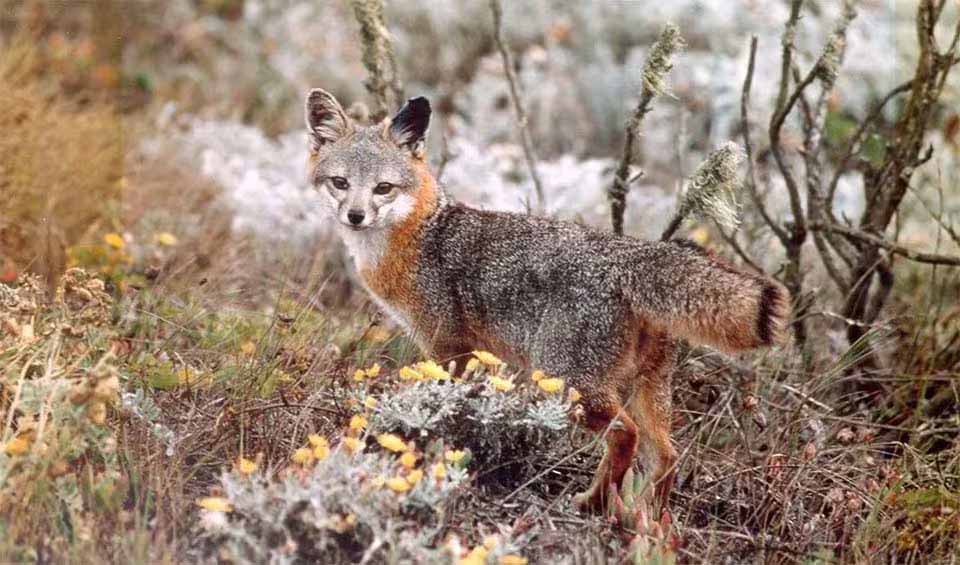The Island Fox, a diminutive and enchanting species, calls the Channel Islands off the coast of Southern California its home. Unique to six of the Channel Islands, this fox is the smallest wild canid in North America, distinguishing itself not just by size but also by its captivating appearance and spirited demeanor. With a weight comparable to that of a domestic cat, the Island Fox embodies a blend of vulnerability and resilience.
Characterized by its engaging appearance, the Island Fox’s playful behavior belies its status as a proficient predator. Capable of consuming an impressively diverse diet, these foxes have adapted to their isolated island habitats with remarkable versatility. Their diet encompasses up to 40 different types of prey, ranging from insects and fruits to small mammals.
However, the road to survival has not always been straightforward for the Island Fox. They faced severe threats from habitat loss and introduced predators such as golden eagles and non-native diseases, precipitating a dramatic decline in their population. The introduction of non-native animals disrupted the delicate balance of the island’s ecosystems, exposing the Island Fox to predators and competition it was ill-equipped to handle. Diseases that were otherwise common and relatively harmless on the mainland posed a significant risk to the isolated populations of Island Foxes, further endangering their existence.
Distribution
 United States
United States Official estimate
Official estimate
Anything we've missed?
Help us improve this page by suggesting edits. Glory never dies!
Suggest an editGet to know me
Terrestrial / Aquatic
Altricial / Precocial
Polygamous / Monogamous
Dimorphic (size) / Monomorphic
Active: Diurnal / Nocturnal
Social behavior: Solitary / Pack / Herd
Diet: Carnivore / Herbivore / Omnivore / Piscivorous / Insectivore
Migratory: Yes / No
Domesticated: Yes / No
Dangerous: Yes / No




